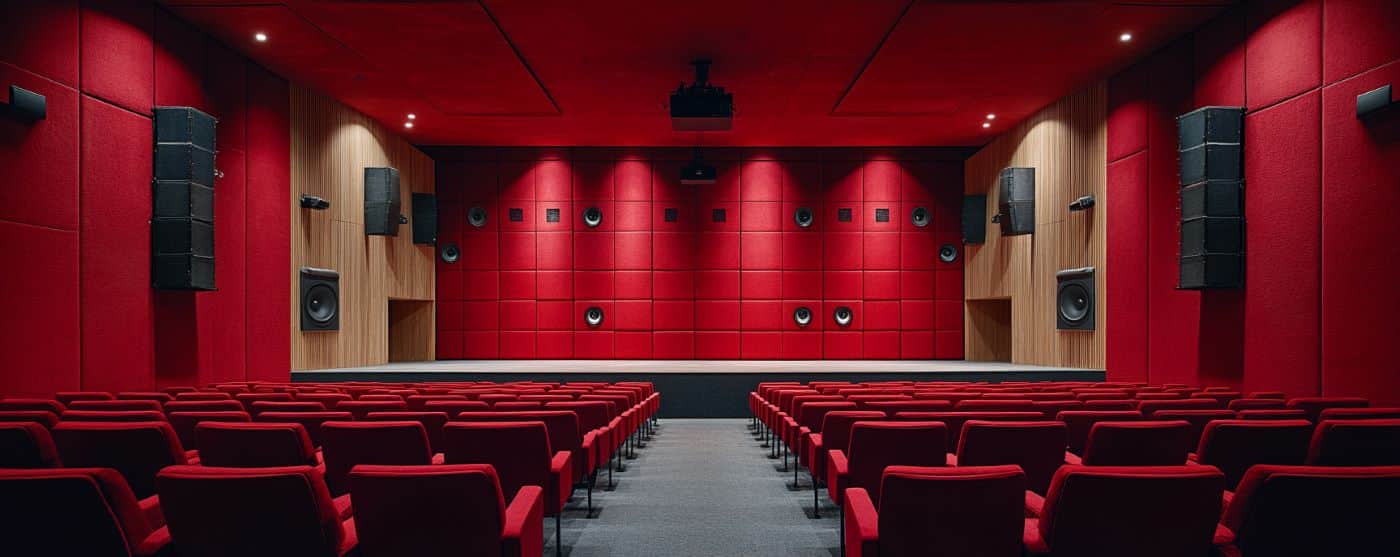
What is an Acoustic Engineer?
Acoustic engineers focus their efforts on the shaping and control of sound. They work to manipulate and capture the vibration of sound by harnessing the best quality for hearing. These engineers work to manage noise control in a variety of industrial, commercial and domestic settings. Acoustic engineers develop noise buffers and sound barriers to optimize hearing as well as refine technology used in recording and live performance such as microphones and amplifiers. Moreover, they often work to develop solutions for transferring sound energy into electricity. Other professionals in the field design interiors by selecting specific construction materials and aesthetic products to customize the sound experience of a given living or work environment. Private enterprises in the fields of construction, architecture, and entertainment are a few of the employers seeking the expertise of these professionals. They often strive to perfect the sound experience in concert halls and recording studios, while others may employ their skills in the healthcare industry with work on equipment like hearing aids.
If you want to work as an acoustic engineer, use our list of colleges and universities that offer programs that can help you achieve your goal.
Acoustic Engineering Degree Requirements
These types of professionals may be asked to perform a variety of duties based on the industry they choose to employ their skills and knowledge. In the construction industry, engineers may execute sound and environmental evaluations on a building to ensure it meets codes and regulations. They may examine how alterations in the design of a structure may impact sound quality. In an industrial setting, these professionals utilize digital hardware and software to determine means for lessening sound disruptions in a work facility, while inquiring into how vibrations impact factory equipment or transportation structures such as a bridge or automobile. In the entertainment sphere, these professionals often work to optimize sound quality in recording studios and in live performance venues, evaluating how structures, materials and digital equipment and software enhance sound quality. Often, bioengineering firms seek these professionals to address how ultrasound and other forms of technology provide the best treatment options for patients under a medical professional’s care. Firms across the world like Sony, LA Live, the NFL, Bose, and Honda are a few of the huge companies seeking the services of these acoustic experts.
How to Choose an Acoustical Engineering School
Not many U.S. universities offer official degrees in acoustic studies, so most professionals complete a Bachelor’s Degree in electrical engineering or a comparable course of study. Most employers do require at least a Bachelor’s as a minimum qualification for entry into the workforce. Many students integrate related acoustic theory courses into their degrees by taking classes in statics, circuits, thermodynamics, sound control, and vibrations, among others. A Master’s Degree may be required to qualify for some positions with a given company. At this level, students complete classes in wave propagation, optics and nonlinear acoustics. The Ph.D. level opens further management opportunities in the field, whereby students will have completed a rigorous academic training rooted in statistical analysis. This level of training opens the door to teaching at universities as well. With an eye to business, students should seek to refine their interpersonal and communication skills as well as their leadership capacities in managing a team of engineers and professionals. They may be asked to negotiate and consult with outside suppliers in managing the lifecycle of a development project.
Salary and Useful Career Resources for Acoustical Engineers
The Technology Student Association (TSA), and the National Society of Professional Engineers (NSPE), provide members and interested parties with comparable tools and information to enhance their value in the contemporary marketplace. All of these institutions publish recent research and logistics regarding industry events and resources to the further refine the prowess of practitioners.
Students and job seekers particularly benefit from involvement with these groups, as the institutions provide invaluable networking and mentoring opportunities for individuals to develop relationships with potential employers and their contemporaries in the field. Esteemed firms such as Boeing, Procter & Gamble, and Universal Studios have sought candidates through these avenues. According to the U.S. Bureau of Labor Statistics (BLS), the job growth projections for acoustical engineers remains strong through 2020, where hiring is projected to grow by 10 percent. The states of California, Texas and Michigan possess the greatest opportunities for professionals. While exact statistics on the median salary of these professionals is unavailable, O*Net reports that electrical engineers of the same background command a yearly salary of $89,180.
An Acoustic Engineering Success Story That Can Inspire You
The Bose company is a prime example of a firm that relies heavily on the expertise of sound engineers. Founded by Amar G. Bose, an engineer himself, who studied at the Massachusetts Institute of Technology (MIT), the firm built its reputation on developing and marketing audio equipment and systems of impeccable quality. The company’s products are popular among consumers, automobile manufactures and performing arts venues. The equipment developed by their sound engineers strives to simulate the quality experienced at a live concert hall. Bose has chosen to engage in long-term, higher-risk projects requiring immense research and development instead of providing cheaper products to its customers. This approach has paid off with the creation of noise-canceling audio equipment such as headphones as well as ingenious suspension systems for the automobile industry.
As a teacher at MIT for nearly 50 years, Bose instructed a course on acoustics that transcended mere technical matters into larger life lessons. Bose stressed to his students the importance of personal responsibility and having high standards for work and integrity. Many students attributed to Dr. Bose their resolve to take on more risky endeavors as well as the technical and critical-thinking skills to achieve success in their careers. The life of Bose and the success of his company serves as a model for all practitioners in the field, underscoring the importance of developing a well-rounded education and approach to successfully tackling both technical and more abstract challenges that they may encounter both in their personal and professional arenas.
If you are ready to learn more about earning a degree that can help you become an acoustic engineer, contact the schools in our directory to learn more today!



